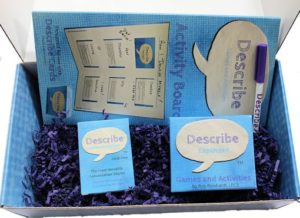More Than Just a Free Newsletter
Become a Tame Your Practice member for FREE and receive our newsletter, special offers, and exclusive members-only content.
ICD-10 Checklist – Prepare for October 1st!
The following article was originally published in preparation for ICD-10 changes that occurred in 2014-2015. It remains published to serve as a reference for those changes and also as a handy checklist to follow whenever similar changes occur.
Here is your bare bones checklist of what mental health professionals need to know and do in preparation for ICD-10 on October 1st.
- You’ve been using ICD all along – The diagnostic codes in the DSM-IV also happen to be ICD-9 codes. With the DSM-V, there is a separation, and the ICD-10 codes appear in parenthesis (and usually start with an “F”).
- Don’t Rely Solely on the DSM-V – While most of the ICD-10 codes are in the DSM, some of the more specific ones are not. For example, with PTSD, only the “unspecified” code is in the DSM-V, while those for “Acute” and “Chronic” are not. This is important for reasons explained below.
- It’s All About The Date of Service – ICD-9 codes should be used for all dates of service that occur BEFORE October 1, 2015, even if you file the claim after Oct. 1. ICD-10 codes should be used for all dates of service, October 1, 2015 and beyond. Do not mix ICD-9 and ICD-10 codes on any claim.
- CPT Codes Stay The Same – Nothing about CPT codes is changing. You’ll still use those to indicate what type of session was conducted.
- Double Check Your Resources – There are a number of crosswalks available online (tools that translate DSM-IV/ICD-9 to ICD-10). Some of them have been found to be incomplete. Be sure to cross-reference any resource you use with the official source – the CMS web site.
- DSM-V Errors – If you have one of the original printings of the DSM-V, it contains errors. You canfind the corrections here.
- Get More Specific – ICD-10 allows for much greater specificity in coding. Word is that insurance companies will be expecting you to use this accurately. “Unspecified” and “Not Otherwise Specified” diagnoses will be under greater scrutiny, especially if you’ve seen the client for several sessions. This is where you may need to go outside of the DSM-V for more specific codes. As always, make sure your notes support the diagnosis and coding.
- Out of Network/Private Pay Only? This Still Likely All Applies to you! If you file OON claims for clients or even just supply them with a SuperBill, this all still affects you. Those claims and SuperBills will have to have ICD-10 codes on them.
- Check-In With Your Vendors – If you use a third-party biller or an EHR/Practice Management System, make sure they are ready for the switch. Ask if they’ve completed testing of their ICD-10 filing capabilities. If it’s an EHR, they may have already implemented the ability to enter ICD-10 codes. Get familiar with this part of the program and ask if there is any training available in case its necessary.
- Prepare Now – While you can’t use the ICD-10 codes on your claims now, I encourage you to look through your current client records and investigate what code you will use for them come October 1st. The more you get done (and understand) before October 1, the easier the transition will be. Use a crosswalk or your EHR as a reference, but also investigate whether there’s a more specific code that would be appropriate.
- Be Prepared For Delays in Payment – Even if you are on top of things, you may encounter delays due to the significant burden the changeover will have on insurance companies and large medical providers. Even without changes like this pending, I always encourage those in private practice to keep at least three months reserve in their business account. Any number of things (illness, disability, death in the family, extended vacation) could impact your cash flow, making it important to have this.
By being aware of these items and taking these steps, your transition into ICD-10 should be made much smoother!
Related News
Similar articles you might be interested in!
Tame Your Practice Free Membership
Tame Your Practice membership is free and provides therapists access to exclusive content, discounts, and deals from partners!
Recommended Technology, Tools, and Resources for Therapists and Counselors
Recommendations for technology, web sites, secure email, phone, credit card processing, therapy tools/interventions, podcasts, and much more!
Health Information Exchanges (HIE) and How They May Affect Your Practice
Health Information Exchanges (HIE) are an initiative related to the Affordable Care Act and the HITECH Act. Their purpose is to ease the communication between the EHR/systems of various providers of health care, because the EHRs themselves are behind in doing so (i.e. interoperability).
About the Author
Rob has been covering technology and business news for mental health professionals since 2011. His extensive experience in IT, business, and private practice allow him to synthesize information in a friendly, digestible manner. He also enjoys time with his family, ultimate frisbee, and board gaming.




